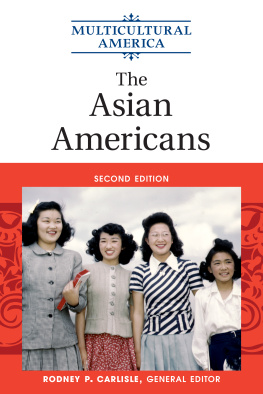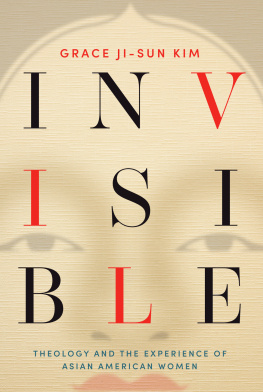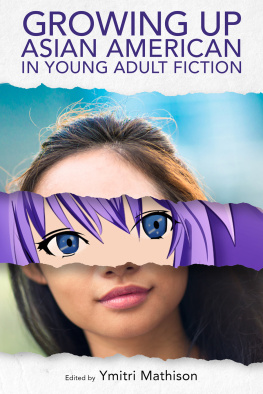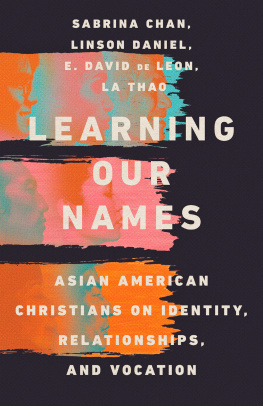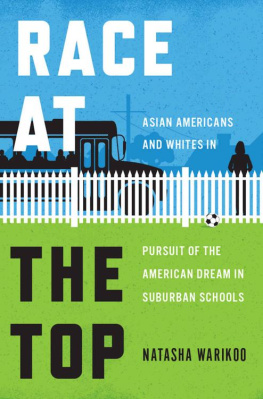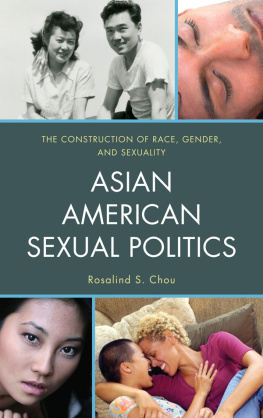LOVE ACROSS BORDERS
High rates of intermarriage, especially with Whites, have been viewed as an indicator that Asian Americans are successfully "assimilating," signaling acceptance by the White majority and their own desire to become part of the White mainstream. Comparing two types of Asian American intermarriage, interracial and interethnic, Kelly H. Chong disrupts these assumptions by showing that both types of intermarriages, in differing ways, are sites of complex struggles around racial/ethnic identity and cultural formations that reveal the salience of race in the lives of Asian Americans.
Drawing upon extensive qualitative data, Chong explores how interracial marriages, far from being an endpoint of assimilation, are a terrain of life-long negotiations over racial and ethnic identities, while interethnic (intra-Asian) unions and family-making illuminate Asian Americans ongoing efforts to co-construct and sustain a common racial identity and panethnic culture despite interethnic differences and tensions. Chong also examines the pivotal role race and gender play in shaping both the romantic desires and desirability of Asian Americans, spotlighting the social construction of love and marital choices.
Through the lens of intermarriage, Love Across Borders offers critical insights into the often invisible racial struggles of this racially in-between "model minority" group particularly its ambivalent negotiations with whiteness and white privilege and on the groups social incorporation process and its implications for the redrawing of color boundaries in the U.S.
Kelly H. Chong is a Professor and Chairperson of Sociology at the University of Kansas. She is the award-winning author of Deliverance and Submission: Evangelical Women and the Negotiation of Patriarchy in South Korea (2008) and numerous journal articles. Her current areas of scholarship include race/ethnicity, gender, immigration, religion, Asian American studies, and Asian studies.
First published 2021
by Routledge
52 Vanderbilt Avenue, New York, NY 10017
and by Routledge
2 Park Square, Milton Park, Abingdon, Oxon, OX14 4RN
Routledge is an imprint of the Taylor & Francis Group, an informa business
2021 Kelly H. Chong
The right of Kelly H. Chong to be identified as author of this work has been asserted by her in accordance with sections 77 and 78 of the Copyright, Designs and Patents Act 1988.
All rights reserved. No part of this book may be reprinted or reproduced or utilised in any form or by any electronic, mechanical, or other means, now known or hereafter invented, including photocopying and recording, or in any information storage or retrieval system, without permission in writing from the publishers.
Trademark notice: Product or corporate names may be trademarks or registered trademarks, and are used only for identification and explanation without intent to infringe.
Library of Congress Cataloging-in-Publication Data
A catalog record for this book has been requested
ISBN: 978-1-138-21254-1 (hbk)
ISBN: 978-1-138-21255-8 (pbk)
ISBN: 978-1-315-45036-0 (ebk)
Typeset in Bembo
by Apex CoVantage, LLC
The making of this book was the result of a long, often arduous, journey. This books completion would not have been possible without numerous colleagues, friends, and family members who supported me throughout the process of research and writing.
My deepest gratitude goes first to all of the individuals appearing in this book who have generously offered their time to talk with me. Although I cannot thank each of them by name, it goes without saying that were it not for their stories, this book would not exist. I especially thank those participants who went out of their way by making it their mission to help me make connections in the field and offering valuable insights along the way. I am grateful for their belief in the worthiness of this project.
I thank the former and current members of my home department at the University of Kansas Department of Sociology for their many years of professional and personal support. These friends and colleagues include Victor Agadjanian, Sandra Albrecht, Elif Andac, Bob Antonio, Lynn Davidman, Brian Donovan, David Ekerdt, Tanya Golash-Boza, Eric Hanley, Shirley Harkess, Shirley Hill, ChangHwan Kim, Meredith Kleykemp, Tracey LaPierre, Cecilia Menjivar, Joane Nagel, Mehranghiz Najafizadeh, Ebenezer Obadare, Emily Rauscher, Bill Staples, Jarron Saint Onge, David Smith, Joey Sprague, William Staples, Paul Stock, and Mary Zimmerman (Mary, you are my hero, and I would not have made it without you). I count my blessings for being able to be part of such a collegial department.
I am especially grateful to those who have taken the time to read and critique parts of this book; thank you, Bob, Brian, Cecilia, Joane, Lynn, and Mary. Special thanks are extended to fellow women chairs Cecile Accilien, Alesha Doan, Ani Kokobobo, and Faye Xiao at the University of Kansas (KU) for their friendship and encouragement. At KU, I also owe a debt of gratitude to Michael Doudoroff, Jennifer Duenas, Elaine Gerbert, D. A. Graham, Jennifer Hamer, Kyoim Yun, Mary Lee Hummert, Clarence Lang, Jennifer Ng, Ji-Yeon Lee, Carl Lejuez, Stanley Lombardo, Crystal Lumpkins, Marcy Quiason, Laurie Petty, Judy Roitman, and Akiko Takeyama. I must also thank sociologys marvelous staff members Beth Hoffman, Corinne Butler, and Melissa Wittner for their assistance on many fronts.
I am deeply appreciative of many colleagues and friends from all corners of the country and globe who have supported me in my scholarly endeavors: this list includes the late Nancy Abelmann, Angie Chung, Diana Lin, Jiannbin Hsiao, Nazli Kibria, Minjeong Kim, Nadia Y. Kim, the late Mary Ellen Konieczny, Loren Lybarger, Rebecca ORiain, Jerry Park, Karen Pyke, Sharmilla Rudrappa, the late Martin Riesebrodt, Stephen Rosenberg, Leslie Salzinger, Miri Song, Paul Spickard, Jessica Vasquez-Tokos, Leslie Wang, and Jun Yoo. I also thank Jennah Bauswell, Scott Bloch, Tina Crawford, Rashmi DePaepe, the late Hilary Dunst, Carol Harrell, Susan Kraus, Leenor Lee, Moonsook Lee, Daniel Levy, Michele Longhurst, Addie Mehl, the late Anne ONeill, Elena Vorontsova, Nina Yoo, and Kathryn Zimmerman. Your presence in my life has been a gift.
I thank the University of Kansas for its financial support for this project, particularly in the form of General Research Funds, grants through the Research Excellence Initiative, research leaves, and other forms of travel and research funds. I thank the American Philosophical Society for the Franklin Research Grant. I owe a special thanks to my editor Dean Birkenkamp at Routledge for his enthusiasm for and belief in this book and his guidance throughout the publication process.
On the personal front: I am profoundly sorrowful that my parents Dongyaw Kim and Hanchae Chong have not lived long enough to see this project to fruition. But they know they have my eternal gratitude. Stacy and Mark, I feel blessed to have you as my siblings. The last decade has been, in many ways, one of the most challenging of my life, especially for the many unexpected losses of those closest and dearest to me, including my parents, mentors, and closest friends. During these difficult times, my life partner, Tim DePaepe, has supported me in countless ways and unselfishly shared the burdens of parenthood. I also feel fortunate to have found in him a stupendous professional collaborator.


